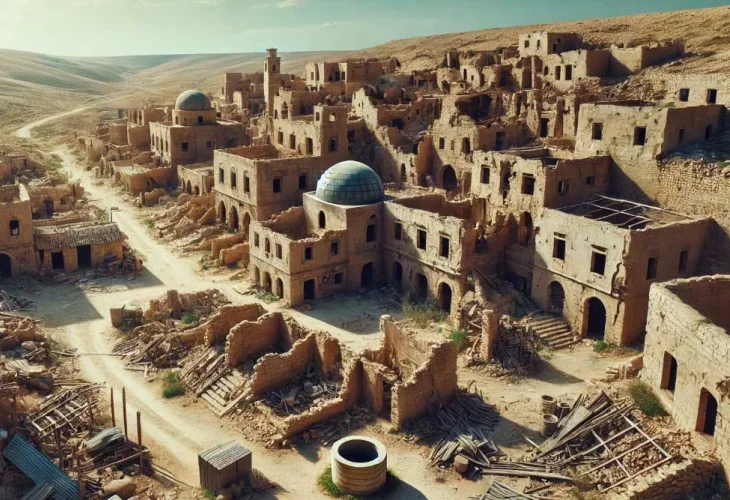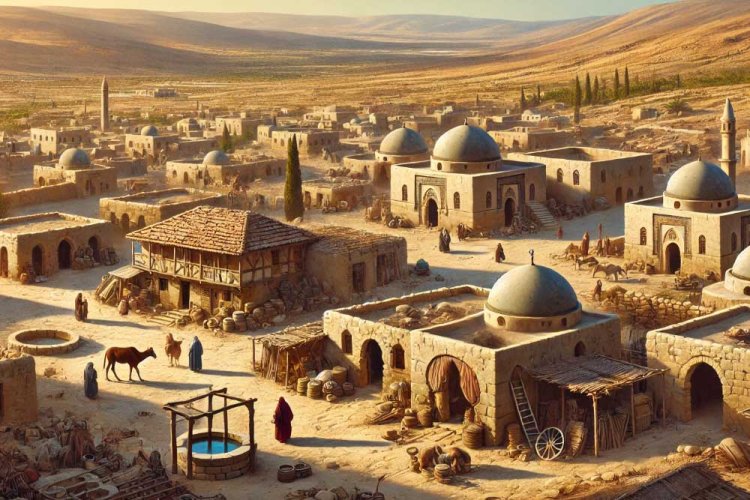The Rise and Fall of Muslim Rule in the Holy Land
Despite the strong Muslim presence in the region during this period, a significant population decline began in the late seventh century. Once fertile lands like the Negev became barren, a state that persists to this day.

In the seventh century CE, about 1,300 years ago, a century after the rise of Islam through Mohammed and his followers who spread jihad across the Arab lands, Muslims took control of the Land of Israel.
However, the Muslims did not establish a centralized government. There was no administrative network to safeguard small villages from bandits or to facilitate trade, resulting in much of the area being neglected. "Everything south of the line from Gaza to the west and Hebron to the east was abandoned." Arabs, accustomed to nomadic tribes, failed to manage permanent settlements.
Therefore, despite the strong Muslim presence in the area at the time and the disappearance of the Byzantine kingdom, there began a decisive demographic trend of population decline from the end of the seventh century onward. The Negev, once blossoming, turned into a wasteland, a condition that persists today. Small portions of it have been cultivated and settled by new communities created in the 20th century, but much work remains to rectify what Arabs destroyed with little effort...
From that period onwards, most settlements remained in ruins. On the map drawn by the Crusaders upon their arrival in the land after 300 years of Muslim conquest, most points start with the term "Khirbet..." meaning ruins. The Muslims focused on major cities, ruling by force, but the country was comprised of many small parts—a puzzle of settlements—which the Muslims neglected, leading to the substantial depopulation of the land.

Muslims also failed to bring in Muslim immigrants from Islamic countries; they governed the existing residents. The land was not Muslim, only under Muslim control, which later allowed for the disintegration of Muslim rule. If the Crusaders had conquered a land populated by Muslims, it would have been interesting but wouldn't change the makeup, just like the British conquered India, yet it remained Indian. The Crusaders could alter the land because it wasn’t truly Muslim.
Even in Jerusalem, Muslims were a minority during the Muslim period. In 951, there were only twenty mosques in the entire country as more were not needed. Villagers migrated to the major cities. Throughout their activities in the land, Muslims only founded one new city, Ramla.
Adding to this, Muslims were drawn into internal conflicts among caliphal families who wanted control, even at the cost of destroying the land and its people. Initially, the Ayyubids ruled; later, the region was taken over by the Umayyads. After several wars, the Abbasids gained control, followed by the Fatimids. Historians note an "Empirical disintegration and division began upon Saladin's death as his many heirs fought over succession... During the Muslim period, a process occurred in the Land of Israel where many agricultural settlements were abandoned and destroyed, the land laid to waste, and the area of cultivated land shrank."
The Muslim geographer Al-Muqaddasi, in his book 'The Best Divisions in the Knowledge of the Regions' (10th century), writes sorrowfully: "Even though the land is beautiful, large parts are empty of people, and many villages are deserted."
The Muslim kingdom in the Land of Israel lasted 300 years until the 10th century, about 1,000 years ago, when the Crusaders destroyed it and conquered the Holy Land.

